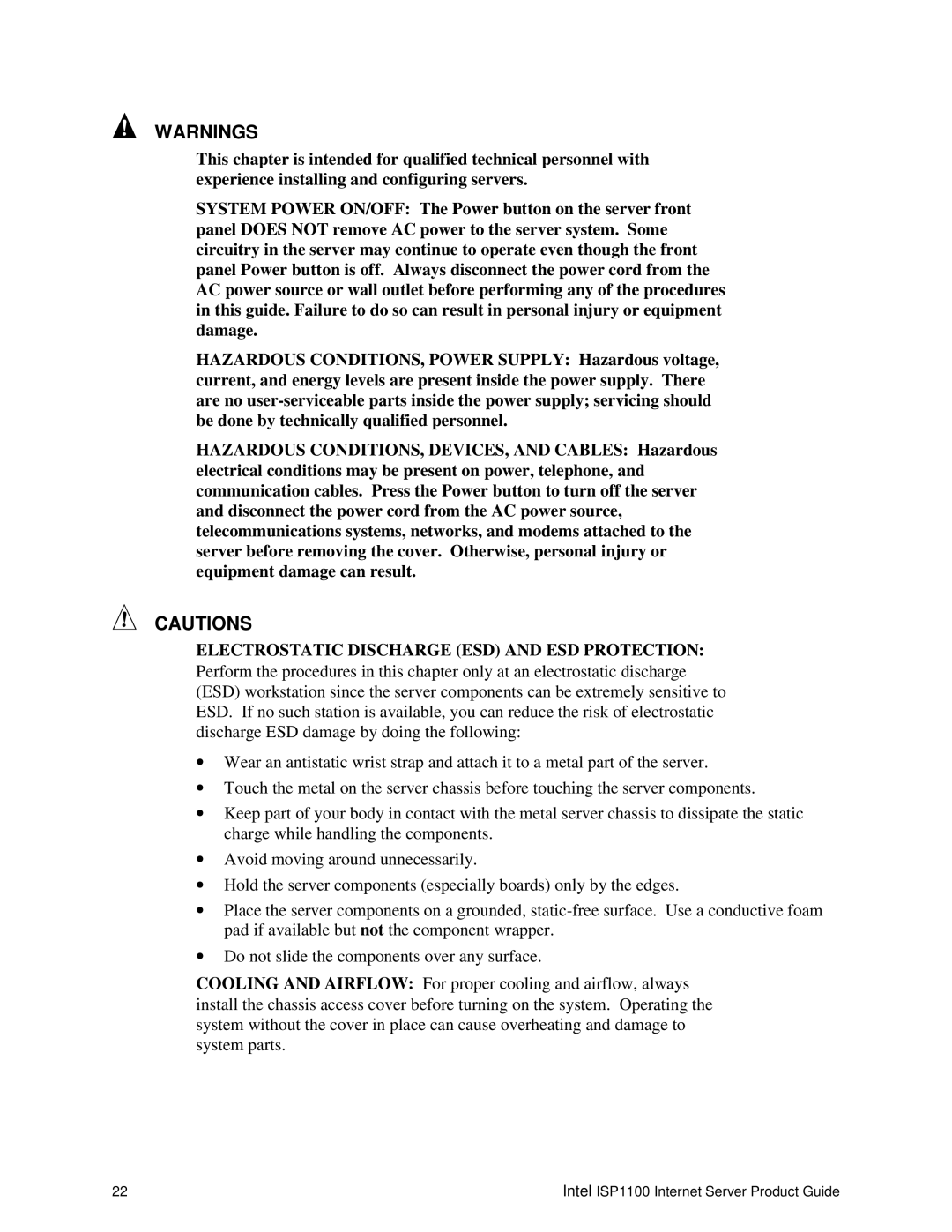WARNINGS
This chapter is intended for qualified technical personnel with experience installing and configuring servers.
SYSTEM POWER ON/OFF: The Power button on the server front panel DOES NOT remove AC power to the server system. Some circuitry in the server may continue to operate even though the front panel Power button is off. Always disconnect the power cord from the AC power source or wall outlet before performing any of the procedures in this guide. Failure to do so can result in personal injury or equipment damage.
HAZARDOUS CONDITIONS, POWER SUPPLY: Hazardous voltage, current, and energy levels are present inside the power supply. There are no
HAZARDOUS CONDITIONS, DEVICES, AND CABLES: Hazardous electrical conditions may be present on power, telephone, and communication cables. Press the Power button to turn off the server and disconnect the power cord from the AC power source, telecommunications systems, networks, and modems attached to the server before removing the cover. Otherwise, personal injury or equipment damage can result.
CAUTIONS
ELECTROSTATIC DISCHARGE (ESD) AND ESD PROTECTION:
Perform the procedures in this chapter only at an electrostatic discharge (ESD) workstation since the server components can be extremely sensitive to ESD. If no such station is available, you can reduce the risk of electrostatic discharge ESD damage by doing the following:
∙Wear an antistatic wrist strap and attach it to a metal part of the server.
∙Touch the metal on the server chassis before touching the server components.
∙Keep part of your body in contact with the metal server chassis to dissipate the static charge while handling the components.
∙Avoid moving around unnecessarily.
∙Hold the server components (especially boards) only by the edges.
∙Place the server components on a grounded,
∙Do not slide the components over any surface.
COOLING AND AIRFLOW: For proper cooling and airflow, always install the chassis access cover before turning on the system. Operating the system without the cover in place can cause overheating and damage to system parts.
22 | Intel ISP1100 Internet Server Product Guide |
